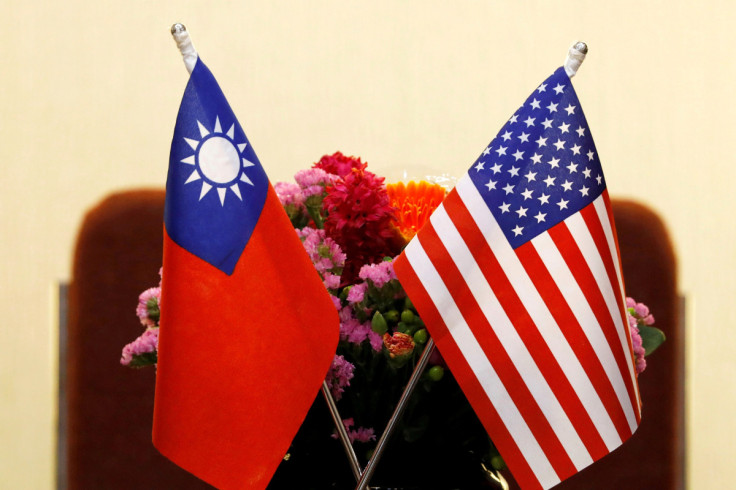Taiwan Preparing For War? New Tested Cruise Missile Could Reach Mainland China
KEY POINTS
- It is believed the weapon is an extended-range variant of the Hsiung Feng 2E land-attack cruise missile
- This missile was launched from the island's southernmost county of Pingtung
- It flew around 186 miles at an altitude of 18.6 miles
As the threat of China increases, Taiwan has reportedly tested a new cruise missile that is likely capable of reaching the Chinese mainland.
The test was carried out by the National Chung-Shan Institute of Science and Technology (NCSIST), according to a report in the South China Morning Post (SCMP).
It is believed the weapon is an extended-range variant of the Hsiung Feng 2E land-attack cruise missile. It was launched from the island's southernmost county of Pingtung, and flew around 186 miles at an altitude of 18.6 miles.
Sources close to the testing told the SCMP the missile could hit a maximum range of 745 miles, which is as far as China's Wuhan in the center and Qingdao on the east coast.
The identity of the weapon was not publicly revealed by the institute, but, according to analysts, it is the new Hsiung Sheng.
Taiwan plans to carry out four more tests this month as tensions with Beijing continue to increase. The NCSIST is currently having 16 production lines for various missiles, including the Wan Chien, Hsiung Sheng, and Sky Bow III.
The NCSIST was also reportedly working with civilian companies to develop unmanned aerial vehicles for military surveillance.
The latest news came as China has increased daily incursions around Taiwan. Since the beginning of February, Beijing has sent 99 military aircraft and 37 naval ships around Taiwan.
Tensions between the two nations also deepened as Beijing ramped up military, diplomatic and economic pressure on the democratic island.
In the meantime, Taiwan was reportedly purchasing volcano mines from the United States, according to the Eurasian Times. Earlier this week, a report in Liberty Times stated the country was expected to ramp up missile production to exceed 1,000 by the end of this year as the threat of China continued.
It was Nancy Pelosi's sudden visit to Taiwan in August last year that further strained the ties between China and the U.S. Beijing responded with a near-complete blockade of Taiwan, followed by live-fire military drills around the island.
As tensions continue to mount in the region, the vice-chairman of Taiwan's main opposition party Kuomintang urged Beijing to help reduce cross-strait tensions.
"The vice-chairman made three major appeals at the start of the talks," a statement issued following a sensitive meeting Thursday attended by Song Tao, head of the State Council's Taiwan Affairs Office and the Taiwan Work Office of the Communist Party's Central Committee, along with Andrew Hsia, read.
"They included consolidating and maintaining the agreements previously made by the two sides to promote public well-being; doing all it can to overcome hardship to reduce the inconvenience and costs deriving from cross-strait exchanges, and easing tensions between the two sides of the Taiwan Strait," it said.

© Copyright IBTimes 2024. All rights reserved.





















